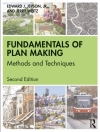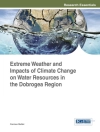This book provides the most recent understanding about climate change and its effects on agriculture in India. Further in-depth research is showcased regarding important allied sectors such as horticulture and fisheries, and examines the effect of climate change on different cereal crops. The individual chapters discuss the different mitigation strategies for climate change impacts and detail abiotic and biotic stresses in relation to climate change. The book provides an insight into environmentally safe and modern technologies approaches such as nanotechnology and utilization of underutilized crops under a changing climate. This book provides a solid foundation for the discussion of climate resilience in agricultural systems and the requirements to keep improving agricultural production.
This book is an excellent resource for researchers, instructors, students in agriculture, horticulture and environmental science.Inhaltsverzeichnis
Introduction.- Future Changes in Rainfall and Temperature under Emission Scenarios over India for Agriculture.- Impact of El-Nino and La-Nina on Indian Climate and Crop Production.- Simulating the Impact of Climate Change and its Variability on Indian Agriculture.- Are GCMs and Crop Model Capable to Provide Useful Information for Decision Making.- Mapping Agriculture Dynamics and Associated Flood Impacts in Bihar using Time-Series Satellite Data.- Impact Assessment of Biopriming Mediated Nutrient Use Efficiency for Climate Resilient Agriculture.- Greenhouse Gas Emissions from Selected Cropping Patterns in Bangladesh.- Global Climate Change and Inland Open Water Fisheries in India: Impact And Adaptations.- Looking at Climate Change and its Socio-economic and Ecological Implications through BGC (Bio-Geo-Chemical Cycle)-Lens: An ADAM (Accretion of Data and Modulation) and EVE (Environmentally Viable Engineering Estimates) Analysis.- Adaptation and Intervention in Crops for Managing Atmospheric Stresses.- Impact of Climate Change on Tropical Fruit Production Systems and its Mitigation Strategies.- Tackling Climate Change: A Breeder’s Perspective.- Decreasing the vulnerability to climate change in less favoured areas of Bihar: Smart options in agriculture.- Nanotechnology in the arena of changing Climate.- Harnessing Under-utilized Corp Species-A promising Way towards Sustainability.- Weather based information on Risk Management in Agriculture.
Über den Autor
S. Sheraz Mahdi is currently working as an Assistant Professor-cum-Jr. Scientist (Agronomy) at Sher-e-Kashmir University of Agricultural Sciences and Technology of Kashmir (SKUAST-K), Shalimar, Srinagar, Kashmir (J&K), India with specialization in crop-climate modeling, climate change and cereal crops production. Before this, he has served the Bihar Agricultural University, Sabour, Bhagalpur, Bihar in the capacity of Assistant Professor, Agronomy for five years (2013-2017) and has been a member of natural resource management research advisory group of the University and state committee on climate change studies. He has worked on climatology of extreme weather events and their impact on rice-wheat cropping system in Bihar. Dr. Mahdi has also worked as a Research Associate at the Indian Meteorological Department (IMD), Srinagar, Kashmir. He took his Ph D (Agronomy) degree from Sher-e-Kashmir University of Agricultural Sciences and Technology of Kashmir (SKUAST-K) and is the recipient of the Young Scientist Award from the Department of Science and Technology, New Delhi, Government of India. Dr. Mahdi has been also an independent researcher in the cold arid region of Kargil Ladkh (Jammu and Kashmir), India, and has guided 06 post-graduate and 05 under graduate students. He has published more than 45 research papers, 12 books and some popular articles, covering some aspects of advanced agronomy in particular.












